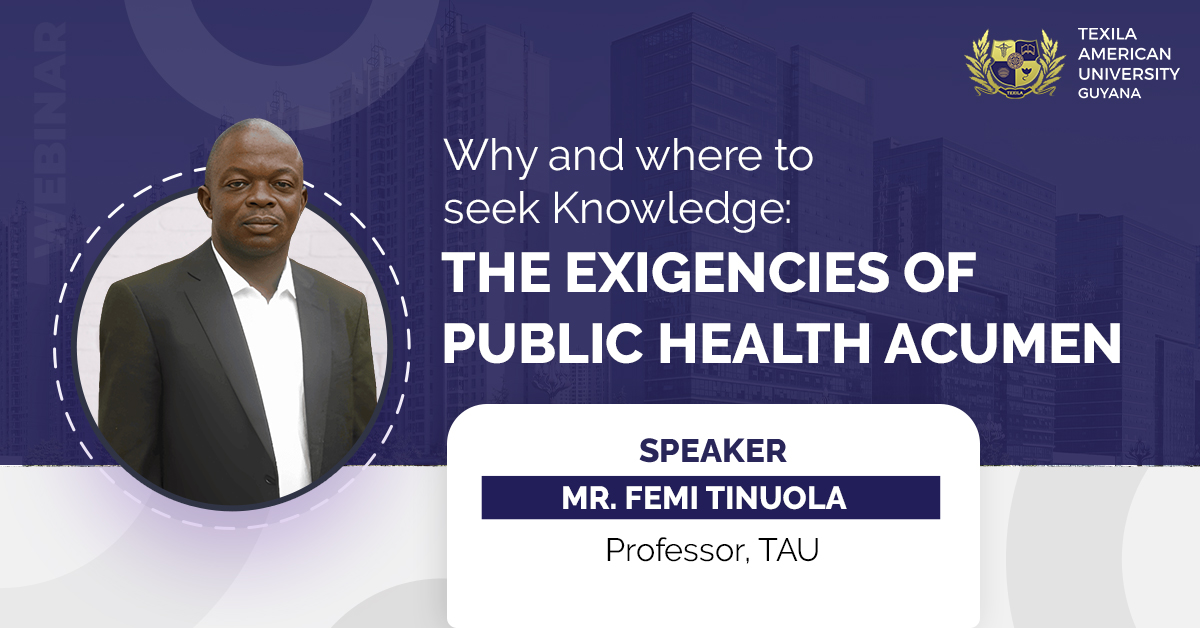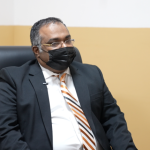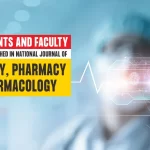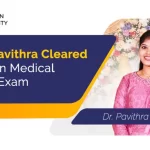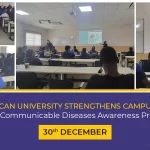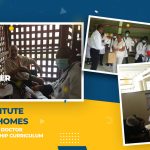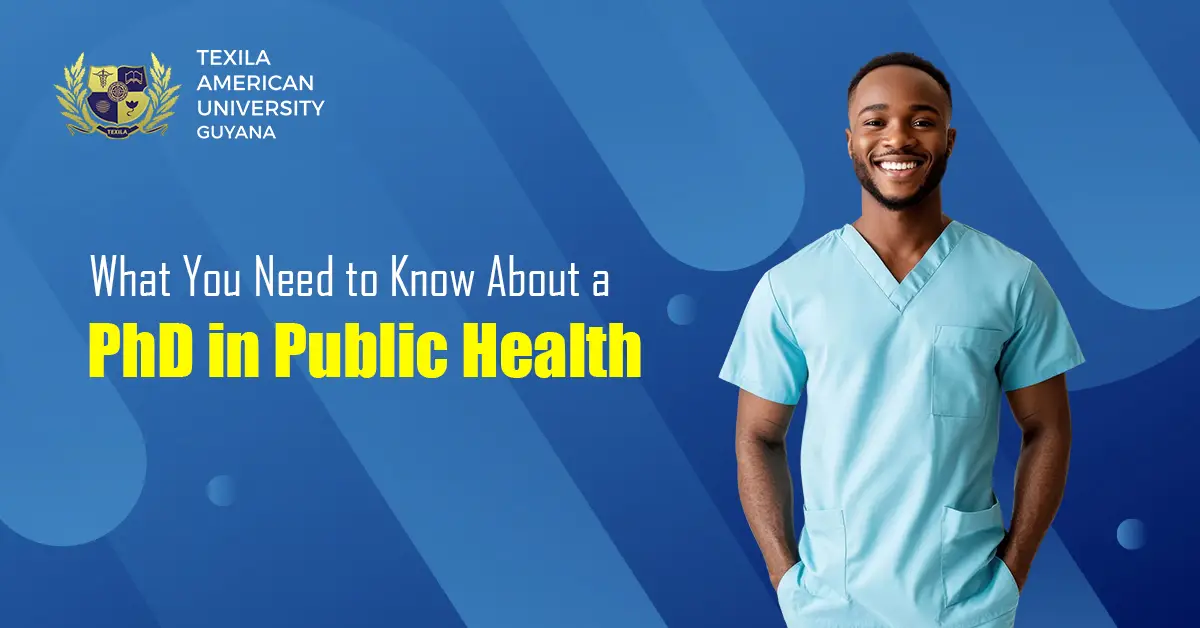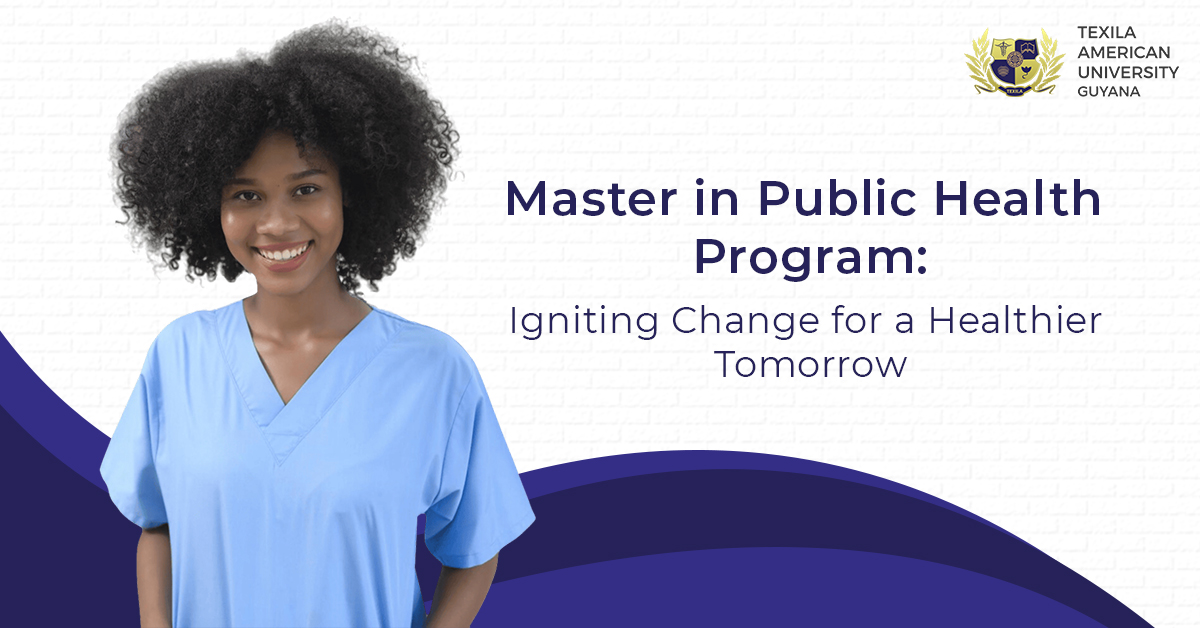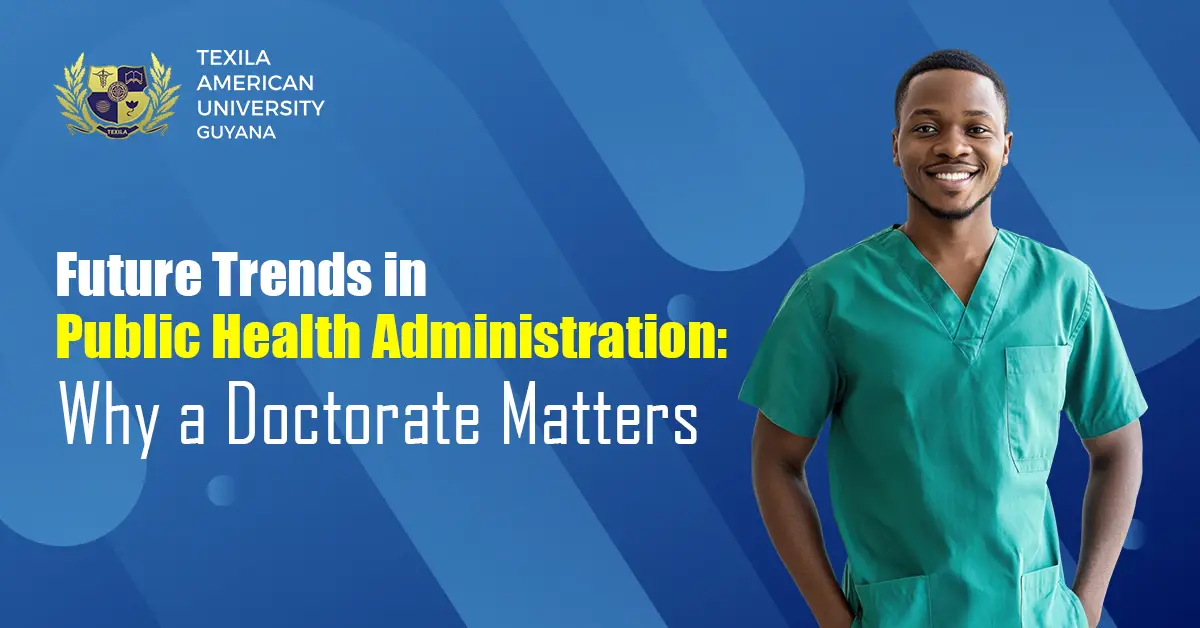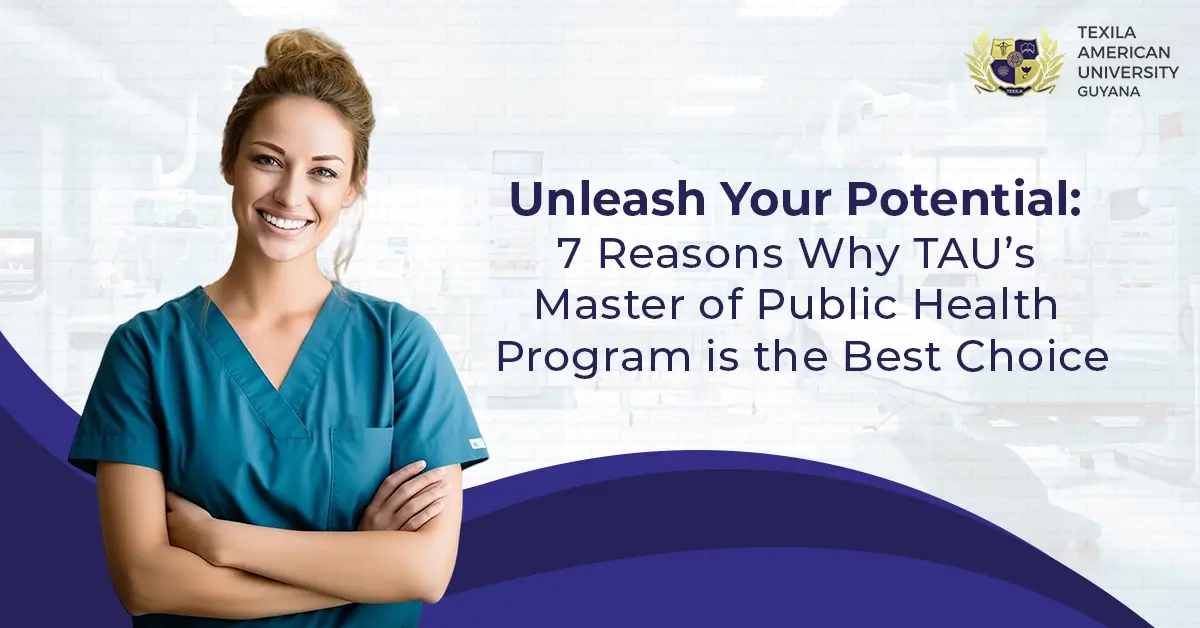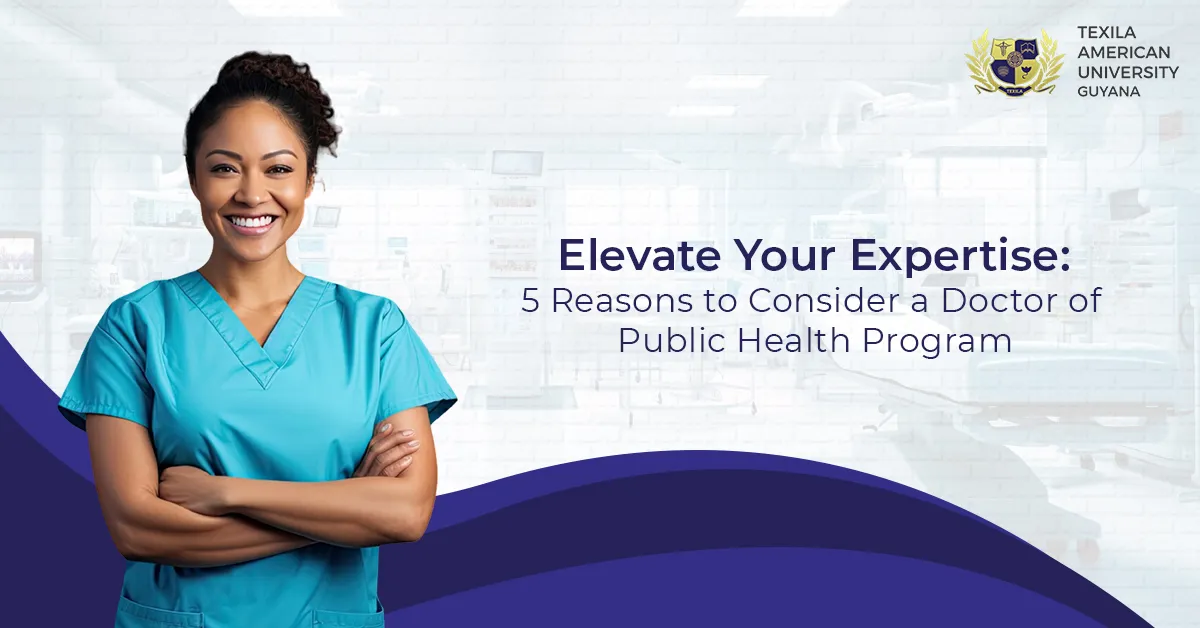Blog Summary
Introduction
On the 13th of July 2023, esteemed Professor Femi Tinuola, an Adjunct Staff at the School of Public Health, Texila American University, Guyana, delivered an enlightening webinar on “Why and Where to Seek Knowledge: The Exigencies of Public Health Acumen.” In his presentation, he delved into the salient issues and key insights by exploring the importance of seeking Knowledge in Public Health. The paper is sectionalized into several parts for clarity and between understanding of the audience and the readers, in line with the paper’s objectives.
Section 1: METHODS OF KNOWING
Professor Tinuola explored the “Methods of Knowing” in Public Health during the webinar. He began by delving into the Three Stages of Knowledge Evolution of Human Knowledge. He started the evolution of human knowledge as identified by a French Philosopher, Auguste Comte, who lived between the years 1798 and 1857 and recognized three stages of human development listed below:
Three Stages of Knowledge Evolution:
- Theological Stage: In the past, Knowledge was often sourced and derived from religious or spiritual beliefs. Theological thinking dominated early understanding, attributing explanations to divine forces and supernatural entities.
- Philosophical Stage: This stage shifted towards rational thinking and intellectual inquiry. Philosophers sought to understand the world through reason, logic, and critical analysis, laying the groundwork for scientific investigations.
- Positivism: According to Professor Tinuola, the third stage, Positivism, remains a crucial milestone raised by Auguste Comte. Positivism emphasizes the scientific method as the primary means of acquiring Knowledge. Comte’s ideas promoted empirical observation, systematic data collection, and objective analysis as essential tools for understanding the world.
Modern Explanations:
Continuing the webinar, Professor Tinuola explored further. Some other modern sources of knowing he christened “Methods of Knowing” in Public Health. He retreated that most explanations about the state of physical, mental, and social well-being of members of the societies. He summarized these into three categories listed and discussed below.
- Experience: He emphasized the importance of personal Knowledge and skills gained through direct encounters with events and facts. Experience in public health serves as the foundation for learning, shaping our understanding of the world. Of course, the experience cannot be bought but garnered over the years by individuals constituting the social actors.
- Reasoning: In the pursuit of Knowledge, Professor Tinuola highlighted the pivotal role of the reasoning faculty in concluding an issue of public health concerns. The adoption of any methodological approach which involves the use of logical reasoning and sound judgment to conclude from available information emanating from what has been found consistent over the years. Here are the three techniques that are frequently utilized to rely on reason as a basis for making sound judgments:
- Deductive Reasoning: Deriving specific conclusions from general principles.
- Inductive Reasoning: Inferring general patterns or principles from specific observations.
- Combined Approaches: Utilizing a combination of deductive and inductive reasoning to arrive at comprehensive conclusions.
Research: In addition, the erudite Professor emphasized the significance of the study as a critical and reliable method of knowing in the field of Public Health. Through systematic investigation and empirical observation, analysis allows us to unveil new insights, identify health determinants, and assess the effectiveness of interventions. Research in public health empowers professionals to make data-driven decisions and contributes to advancing Knowledge in the field.
Section 2: RELATIONSHIP BETWEEN SCIENCE AND PUBLIC HEALTH
Let’s dive into Section 2, exploring the intriguing relationship between Science and Public Health.
A. What is Science? (Positivism)
Professor Tinuola illuminated the essence of science, particularly within the context of what is positive, called Positivism in empirical parlance. Science is a practical discipline grounded in empirical investigations and systematic observation. It relies on objective data and evidence to understand and comprehend the world and its phenomena.
B. Goals of Science
In this segment, he highlighted the fundamental goals of science, applicability, and relevance in Public Health. Science serves tripartite key objectives: Explanation, Prediction, and Control of health issues. By seeking explanations, we can understand the root causes (aetiology), diagnose and address various health problems identified in private and public spaces. Through prediction, we anticipate health trends and challenges, enabling timely intervention. Lastly, control allows us to implement evidence-based strategies to manage health issues effectively.
C. What is Public Health?
Professor Tinuola emphasized that Public Health is the science of improving community well-being. It involves rigorous research, evidence-based programs, policies, and education to safeguard and enhance the health of entire populations. The focus extends beyond individual health to protect the collective well-being of communities and address public health problems at their roots.
D. Importance of Education about Public Health
He underscored the critical role of formal and informal education in public health. Education is pivotal in health promotion, disease prevention, and empowering communities. Education is vital in promoting better health outcomes by identifying the underlying reasons for health issues and creating creative solutions. It empowers individuals and communities to make informed choices regarding their well-being.
In continuation of Section 2, Professor Femi discussed additional essential aspects of public health practice.
- Creating Public Awareness: Inform communities about health risks and prevention through education.
- Data Collection on Diseases: Monitor and control diseases with evidence-based data.
- Identifying Health Issues: Assess health hazards and outbreaks for targeted interventions.
- Initiating Educational Programs: Empower communities with Knowledge of hygiene and first aid.
- Designing Health Service Delivery: Improve healthcare access for all individuals.
- Making Policies and Regulations: Develop plans for equitable healthcare and well-being.
- Conducting Community Wellness Programs: Provide vaccinations and health surveys for impact.
- Conducting Research for Solutions: Advanced medical Knowledge and treatments.
- Identifying Potential Threats: Swiftly address emerging health challenges.
- Public Health Practitioners as Counsellors: Promote mental health and resilience in communities.
Section 3: SPECIALIZED ROLES IN PUBLIC HEALTH
- Epidemiologists: Gather data on infectious diseases to understand patterns and develop prevention strategies.
- Health Administrators: Manage finances, ensure compliance, and facilitate meetings for efficient health institutions.
- Human Resource Managers: Recruit, train, and develop skilled public health professionals.
- Grant Writers: Secure research funding for essential public health projects.
- Community Health Specialists: Tailor programs to diverse communities’ unique needs for improved well-being.
Section 4: SALIENT POINTS FOR PUBLIC HEALTH STUDENTS
- Interdisciplinary Program: Public Health encompasses disciplines like Nursing, Demography, Clinical Psychology, Health Sociology, and Health Education. This diverse approach enables students to tackle complex health challenges effectively.
- Leadership Skills: Public Health education emphasizes leadership development, preparing students to become administrative heads of health organizations. These skills empower them to drive positive change and improve community health outcomes.
- Public Policy and Service Management: Public Health training includes vital public policy and service management aspects. Students learn to develop and implement policies that promote equitable healthcare access and enhance population well-being.
- Opportunities in Health Policy and Management: Public Health graduates have diverse career opportunities in health policy and management. Their expertise is invaluable in shaping effective health initiatives and improving public health systems.
- Professional Development: Public Health education is a professional pathway offering continuous growth and development. As practitioners stay updated with advancements in the field, they can make a lasting impact on global health challenges.
Public health students can build a strong career foundation by understanding these salient points and contribute significantly to improving public health worldwide.
As Femi pondered on these statements, he was delighted to share how Texila American University embraces and highlights these crucial points:
- “Health is Wealth” – Tinuola emphasized the profound truth behind this saying and how Texila American University places great importance on prioritizing health and well-being. Through its diverse curriculum and comprehensive programs, the university ensures that students understand the value of good health as the foundation of a prosperous life.
- “Public Health is a unique discipline” – Tinuola proudly spoke about Texila American University’s distinctive Public Health Program, which adopts a multidisciplinary approach. He highlighted how the university equips students with a diverse skill set, enabling them to tackle complex health challenges effectively.
- “Public Health Practitioners are unique” – Tinuola acknowledged the vital role of public health professionals as agents of change and advocates for community health. He stressed that Texila American University’s training nurtures their passion and dedication, preparing them to drive impactful improvements in public health.
- “Public Health training offers unique services for physical, mental, and social well-being” – Tinuola emphasized the university’s commitment to a holistic approach in Public Health training. Students learn to provide comprehensive services tailored to diverse community needs by focusing on physical, mental, and social well-being.
- “Studying Public Health in Texila American University is a unique opportunity.” The Professor highlighted how Texila American University stands out as a premier institution offering unparalleled opportunities for students interested in Public Health. He described the specialized curriculum, experienced faculty, and state-of-the-art resources that position students for excellence in the dynamic field of public health.
Conclusion
In conclusion, Tinuola reiterated that Texila American University acknowledges and celebrates these essential aspects of public health education. Through its unique and comprehensive approach, the university prepares students to become exceptional public health professionals, making significant contributions to improving global health outcomes.

